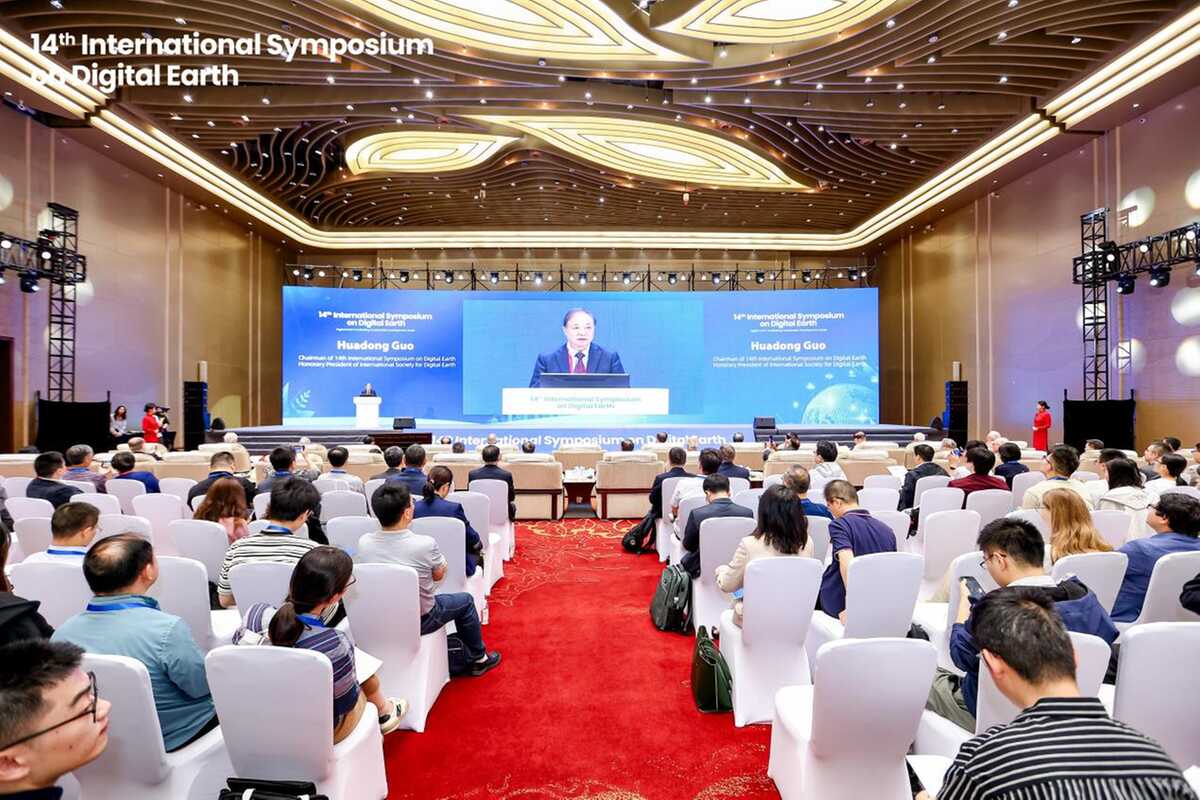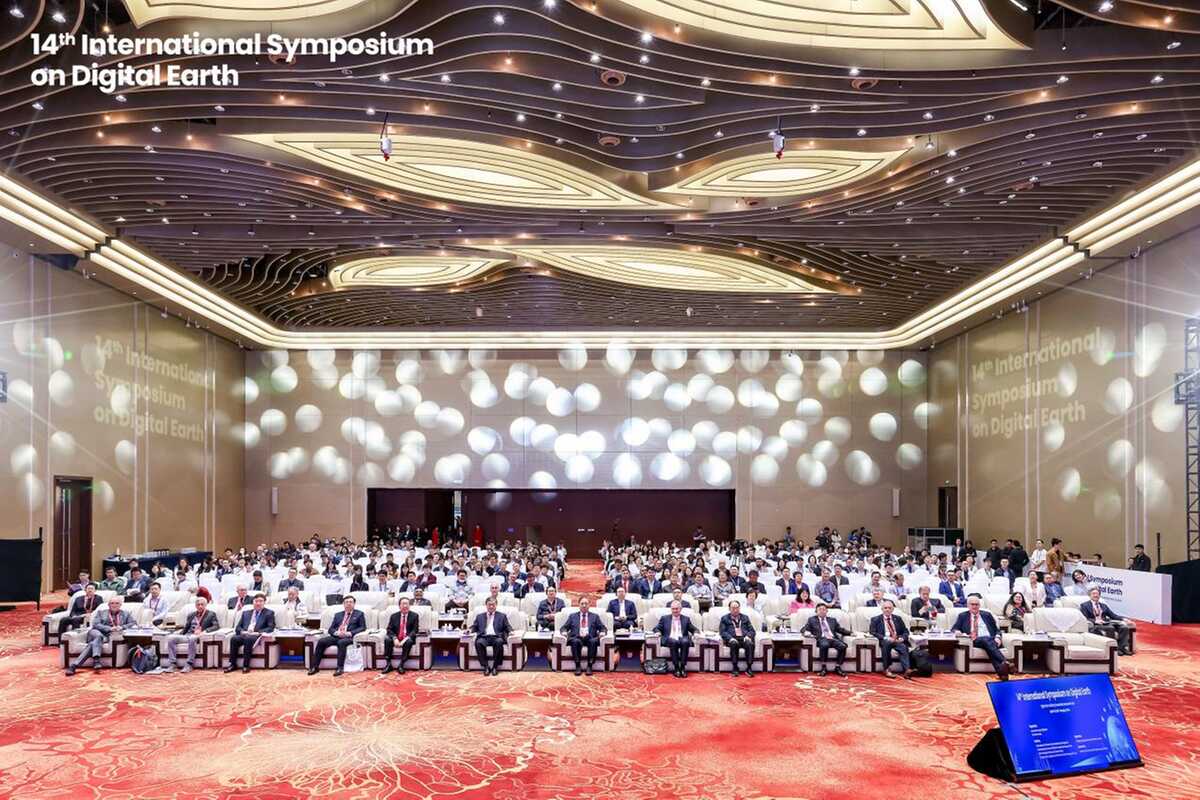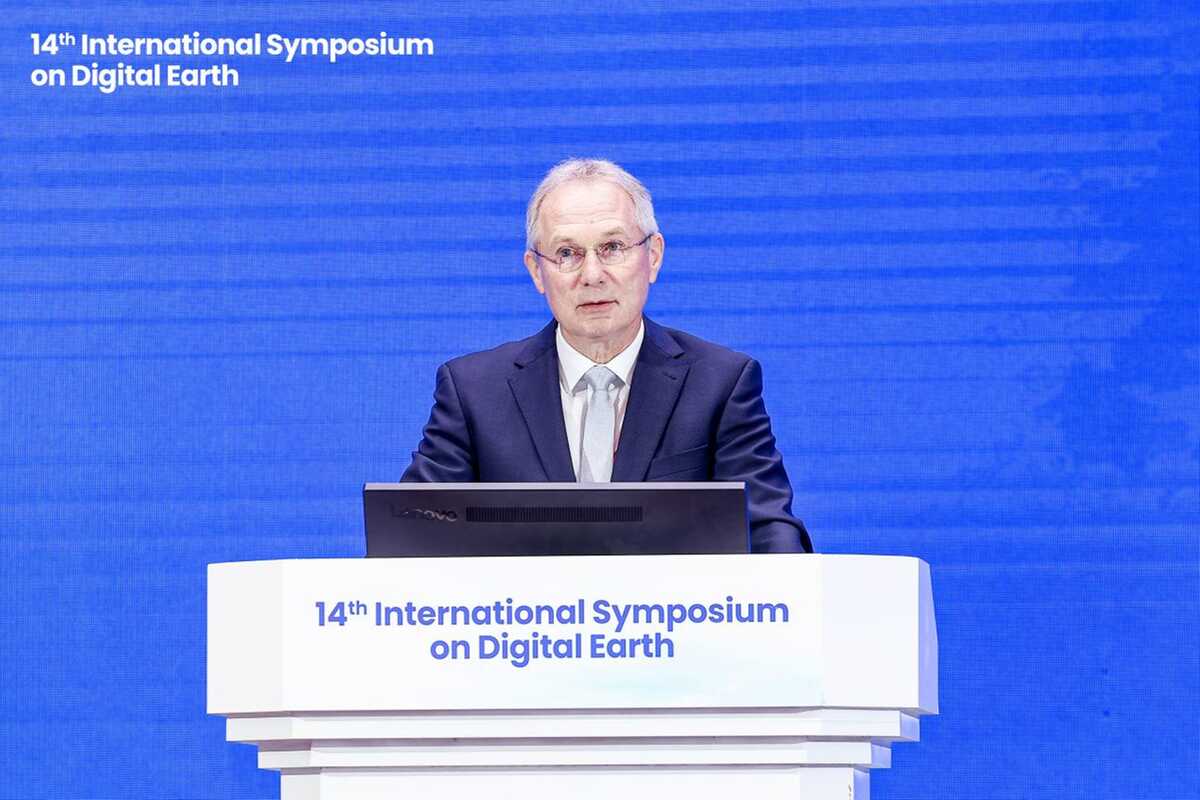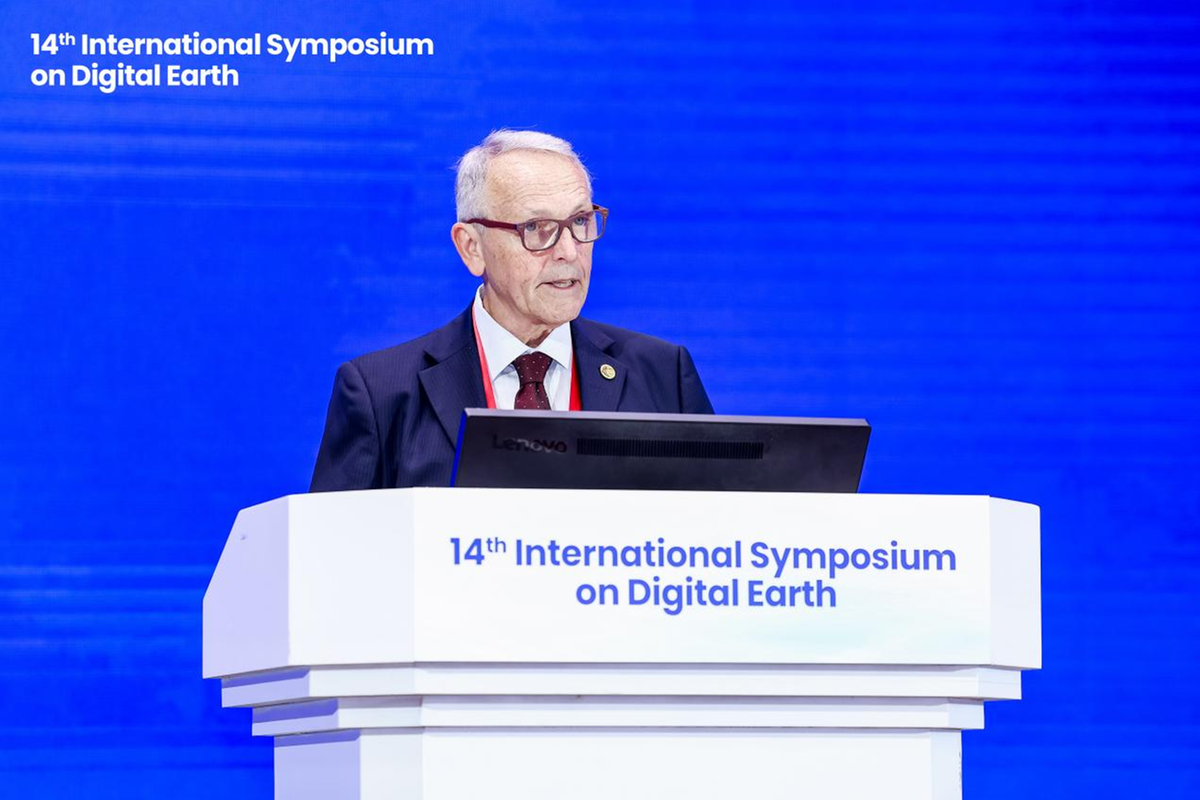Digital Earth Symposium Opens in Chongqing with Focus on SDGs

Chinese Academy of Sciences Academician Guo Huadong chairs the activity. [Photo provided to chinadaily.com.cn]
The 14th International Symposium on Digital Earth opened on Monday in Chongqing, drawing nearly 700 delegates from 30 countries and regions to discuss how digital technologies can help accelerate progress toward the United Nations Sustainable Development Goals.
Co-hosted by the International Society for Digital Earth and Southwest University, the three-day event features high-level discussions on technological innovation, ecological advancement and global sustainability.
Speakers at the opening ceremony included Chongqing Vice-Mayor Ma Zhen, United Nations General Assembly President Csaba Korosi, ISDE President Alessandro Annoni and Southwest University President Wang Jinjun.

The 14th International Symposium on Digital Earth kicks off in Chongqing on Monday. [Photo provided to chinadaily.com.cn]
In his remarks, Korosi emphasized the transformative potential of Digital Earth technologies. "Science shapes our understanding of reality, and Digital Earth offers a new approach to achieving sustainability," he said, calling for stronger international cooperation.
Annoni highlighted China's role in advancing Digital Earth research, citing breakthroughs such as AI-powered satellites and digital twins. However, he noted that significant gaps in sustainable development remain and called for wider adoption of open science principles.
The ISDE conferred its highest honor, the ISDE Fellow title, on Annoni and Li Deren, an academician with the Chinese Academy of Sciences, for their contributions to geospatial sciences and Digital Earth development. Additional awards recognized global pioneers in the field.

United Nations General Assembly President Csaba Korosi gives a speech. [Photo provided to chinadaily.com.cn]
In a keynote speech, Li demonstrated how spatio-temporal intelligence supports SDG monitoring, including disaster tracking and economic mapping. CAS academician Guo Huadong highlighted China's Big Earth Data program, including the SDGSAT-1 satellite and a UNESCO-backed Digital SDGs initiative.
This marks the third time the symposium has been held in China since its inception in 1999. It will conclude with the adoption of the 2025 Chongqing Declaration on Digital Earth. More than 50 parallel sessions will explore topics including AI applications, disaster reduction and big data sharing.

ISDE President Alessandro Annoni gives a speech. [Photo provided to chinadaily.com.cn]
A World Earth Day pop-up event hosted by Southwest University also drew strong public participation, underscoring the symposium's outreach efforts.
Founded in 2004, the ISDE promotes international collaboration in Digital Earth research. It has organized 14 symposia across 16 countries and publishes two academic journals: International Journal of Digital Earth and Big Earth Data.
The event is co-organized by the International Research Center of Big Data for Sustainable Development Goals under CAS and Southwest University, with support from nearly 40 institutions worldwide.
Source: China Daily



News & Events